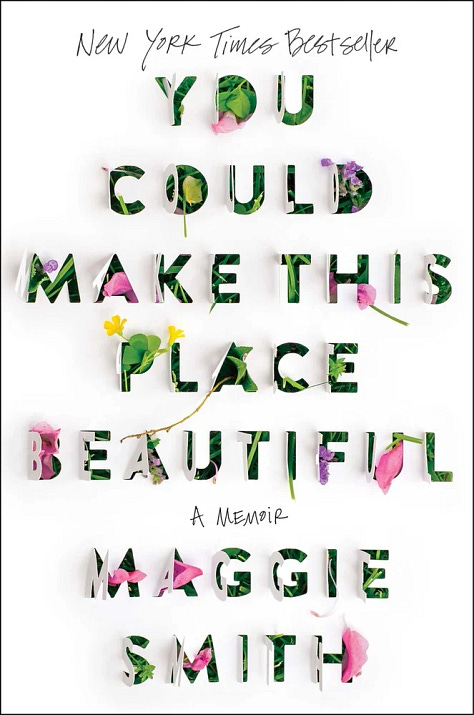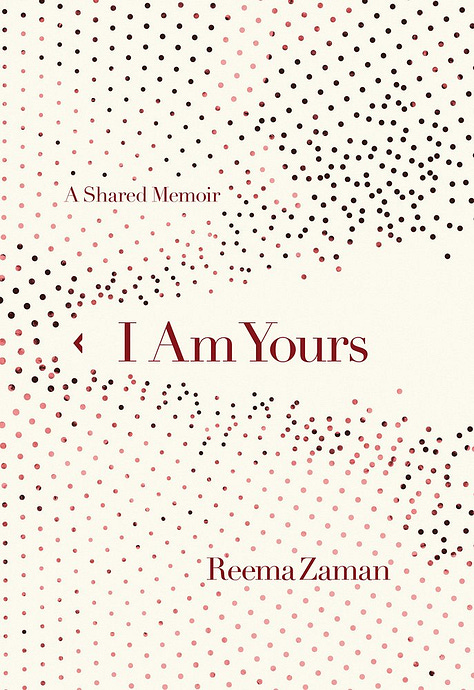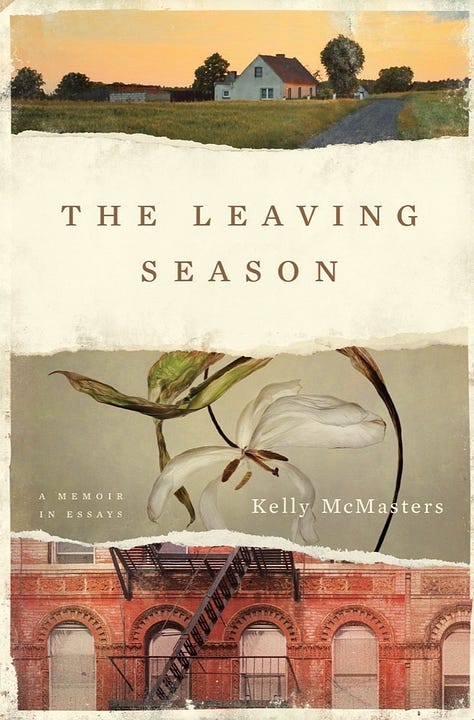One of the most common questions I hear from folks working on a memoir is, How much is too much when it comes to divulging the details of your personal life?
It’s a tricky question to answer. And it speaks to the tricky nature of the genre itself. Unlike fiction, in which authors can hide behind imaginary characters and events, even disguising autobiographical details along the way, memoirists have no such camouflage. What we put on the page stands as truth, and readers are as likely to judge the author as they are the writing itself. It’s why some writers will never tackle the genre. It’s also what makes the genre enormously rewarding. Nothing is as captivating as someone’s real-life story.
Which brings me to a recent reading experience.
I just finished a memoir that left me spellbound, unsettled, and thinking about it long after. It’s a book that’s getting lots of traction among readers, mainly female, middle-aged readers like me, who upon finishing it, texted our closest friends, demanding, “Please read this! I need someone to process it with!”
In the days since putting it down (don’t worry, I’ll share the title in just a moment!), I’ve been reflecting: What was it about this book that got under my skin? And, how do you evaluate a memoir THIS personal?
If we’re being truthful, humans are natural voyeurs. Juicy, personal details are what keep many of us reading! It’s why I devoured Molly Roden Winter’s memoir, MORE, in a record-setting three hours. I literally could. not. stop. turning. the. page.
The premise? Molly is a 40-something Brooklynite, married for more than a decade to her partner, Stew, and the proud mother of two boys. When she has a chance encounter at a bar that results in a new crush, she and her husband decide to embark on a journey that expands the boundaries of their formerly monogamous marriage.
Polyamory and open marriage are fascinating topics, certainly for me, someone who also penned a quite intimate marriage memoir. While LOVE YOU HARD is a memoir about leaning into commitment and sticking out the hard shit, I want to be abundantly clear that when it comes to long-term partnerships, I’m in favor of whatever works! Divorce, polygamy, monogamy, queer life, single life - anything that promotes healing and sparks joy, as it will. Partnership is unequivocally hard and I leave it to each individual to decide what works best for them and to navigate that course. No judgment.
So it’s fair to say that I approached MORE with an open mind, eager to support a fellow memoirist, and curious to know: Does this type of arrangement really work for both partners?
Now that I’ve finished the book, that question feels like the least interesting (and most unanswerable) thing to discuss about it. Mostly, I’ve been ruminating, What was it like to get SO personal as an author?
I suppose it’s a funny quandary. After all, many friends and readers have asked me a variation of that exact question over the years: How did I overcome the mental hurdle of revealing vulnerable information? How did I write about the lows of my marriage? My sex life? My depression?
Generally, I laugh, shake it off, and reply with one of the following answers:
It wasn’t hard to write about something that’s no longer true.
I was determined to erase any shame about the experience.
I wanted to free other people from their shame.
I wanted to tell the truth about caregiving in a way I’d never read before.
All true answers, but it doesn’t mean I’m eager for the day my children read my book and look at me through new eyes (for reference, my 7-year-old tried to bring it to a sleepover the other night and I nearly had a heart attack).
I asked myself countless times while writing it (and especially when I pictured the parents on the school playground whispering about it), Is this TMI (Too Much Information) and will I regret it later?
Five years later, I have no regrets yet. But I realize now how carefully and individually an author must treat these decisions. There are no one-size-fits-all strategies for determining if information is TMI, or if you’ll feel a sense of self-exploitation after sharing about your life.
Throughout MORE, Winter speaks candidly about her affairs - not only her angst about these relationships but the nitty-gritty of her sexual encounters. It was enough to force my progressive jaw open at several points, my thoughts pinging between “WOW!”, “Ughh,” and “What will her children say one day?”
I’d fallen into the trap so many memoir readers find themselves: linking my opinions of the book to my judgment of the author. It’s why I’ve spent the past week trying to parse out my thoughts and reflect on this concept of TMI.
It’s worth acknowledging that Winter is a strong writer. This book was no chore to read. The structure flowed organically, the tension was well established, and I was riveted throughout. I especially enjoyed the generational aspect of Winter initiating difficult conversations with her mother to learn about her parents’ open marriage. This felt like rich terrority, a place for an author to dig in, get uncomfortable, and make meaning.
But many readers, I fear, will be more likely to finish the book grasping the rough-hewn details of Winter’s sex life instead.
Perhaps that in itself is a worthy feat: writing something so memorable it long stays with your readers. It all depends on an author’s intentions for their work. And that’s where the concept of TMI can be evaluated less abstractly.
The hardest question for any writer is, What is your book really about?
It’s a question not dependent on the events in the book (i.e. this is a book about open marriage or a book about brain injury) but on the thematic messages embedded for the reader (i.e. this is a book about a woman reclaiming power).
It’s a hard ass question to answer and an essential one because every craft decision rests upon it.
Early drafts of LOVE YOU HARD included their own share of tea. But throughout the revision process, I realized that few of those moments served the intention of the overall project. Juicy as they were, I’d have been doing myself (and readers) a disservice by linking them to this particular narrative. And so I cut them.
As a memoirist, it can be tempting to get gossipy, even about ourselves. We know which details will raise eyebrows and make for great book review headlines, but a certain level of integrity is required by the process. After all, this is our life we’re writing about. Failing to do it justice on the page only harms ourselves.
Mathematically, I always return to this inequality: my life > my book.
So, I’ll leave it to you, the reader, to decide what is TMI for you (and if you’ve read MORE, please comment below. I’m dying to know your thoughts). But for the memoirists out there, I venture to say that TMI is certainly possible in our genre, and only by honoring your deepest intentions for your writing can you decide how much is too much, what to keep, and what to leave out.
And if all else fails, ask:
How does this detail serve the story?
How would it impact the narrative to leave it out?
What do my beta readers say?
How will I feel 5, 10, 20 years down the road?
When it comes to memoir, you’ll never regret elevating integrity and reflection before committing your life to the page.
Some of my favorite, expertly-written marriage memoirs:



YOU COULD MAKE THIS PLACE BEAUTIFUL by Maggie Smith (out in paperback now!)





This would make a fabulous book discussion. I agree, the question of what is too much does affect whether a book gets written.
I wonder--when you wrote your memoir, did you write everything into a draft as if journaling and then decide what served the themes of the story?
Did you journal separately about how you felt along the journey and what you internally felt, then processed what you would add to the final memoir?